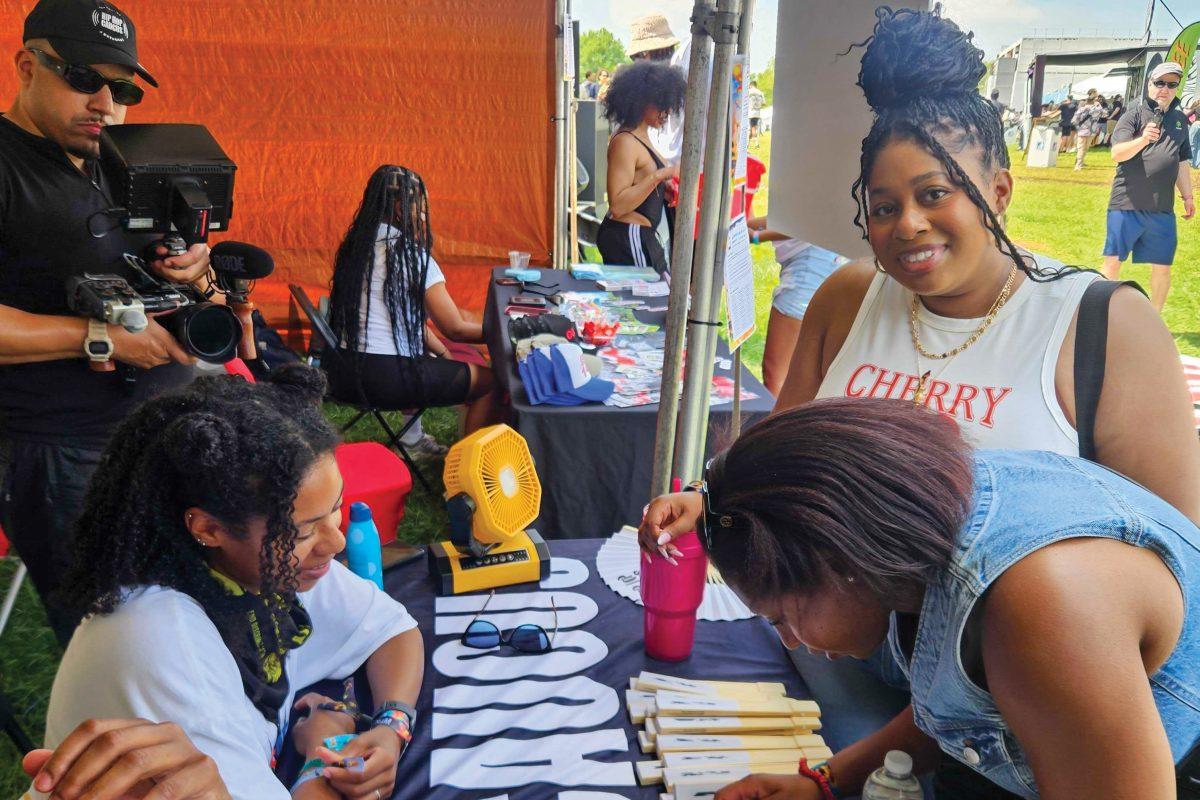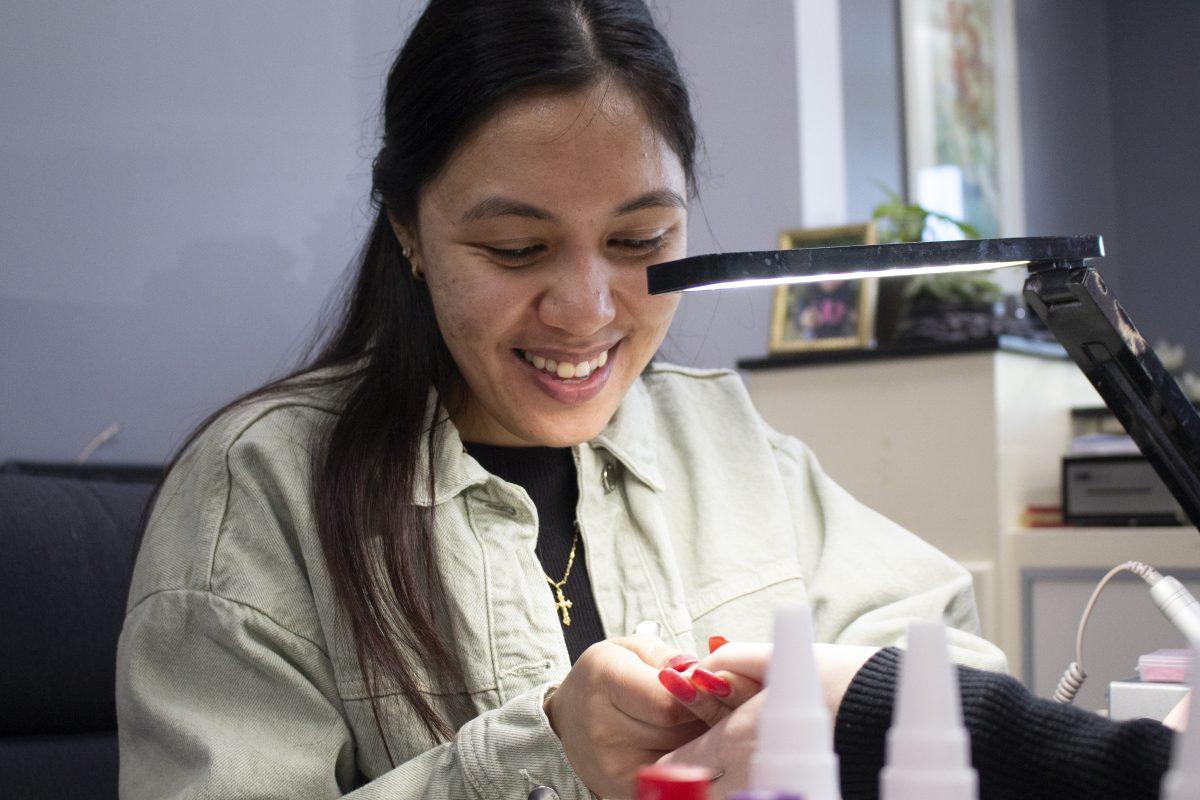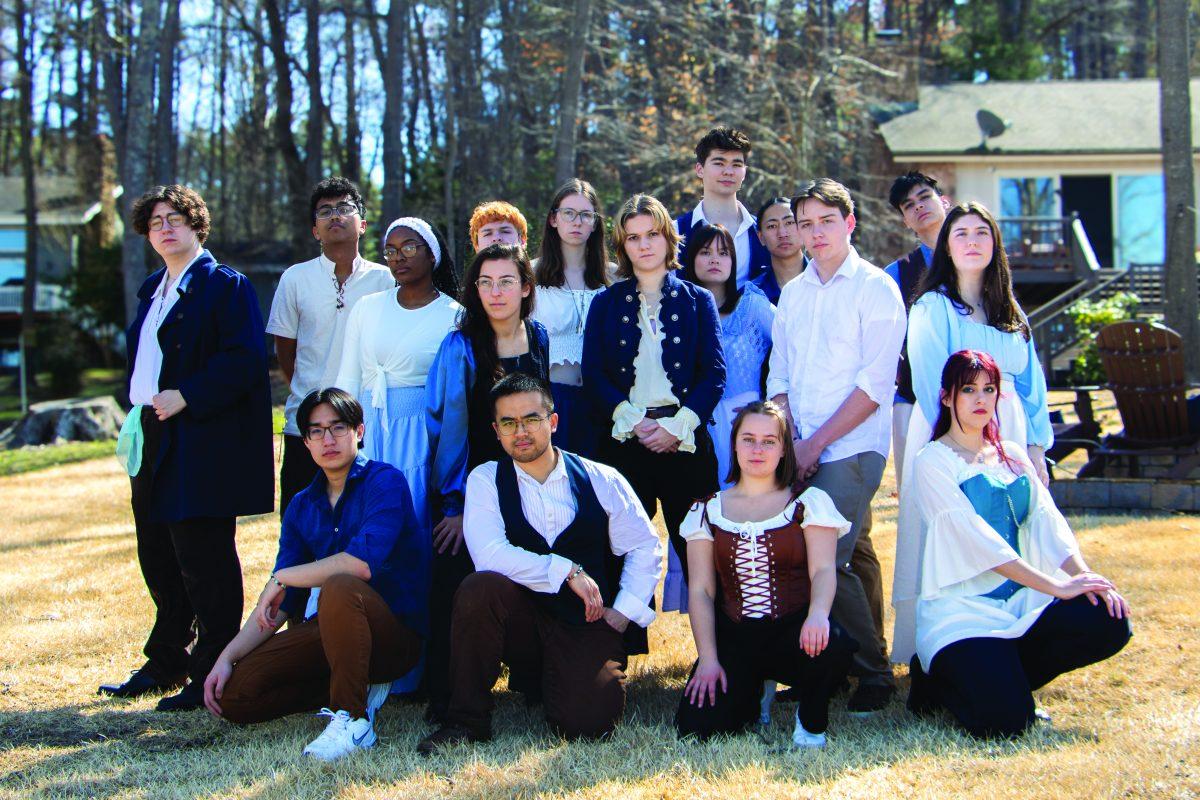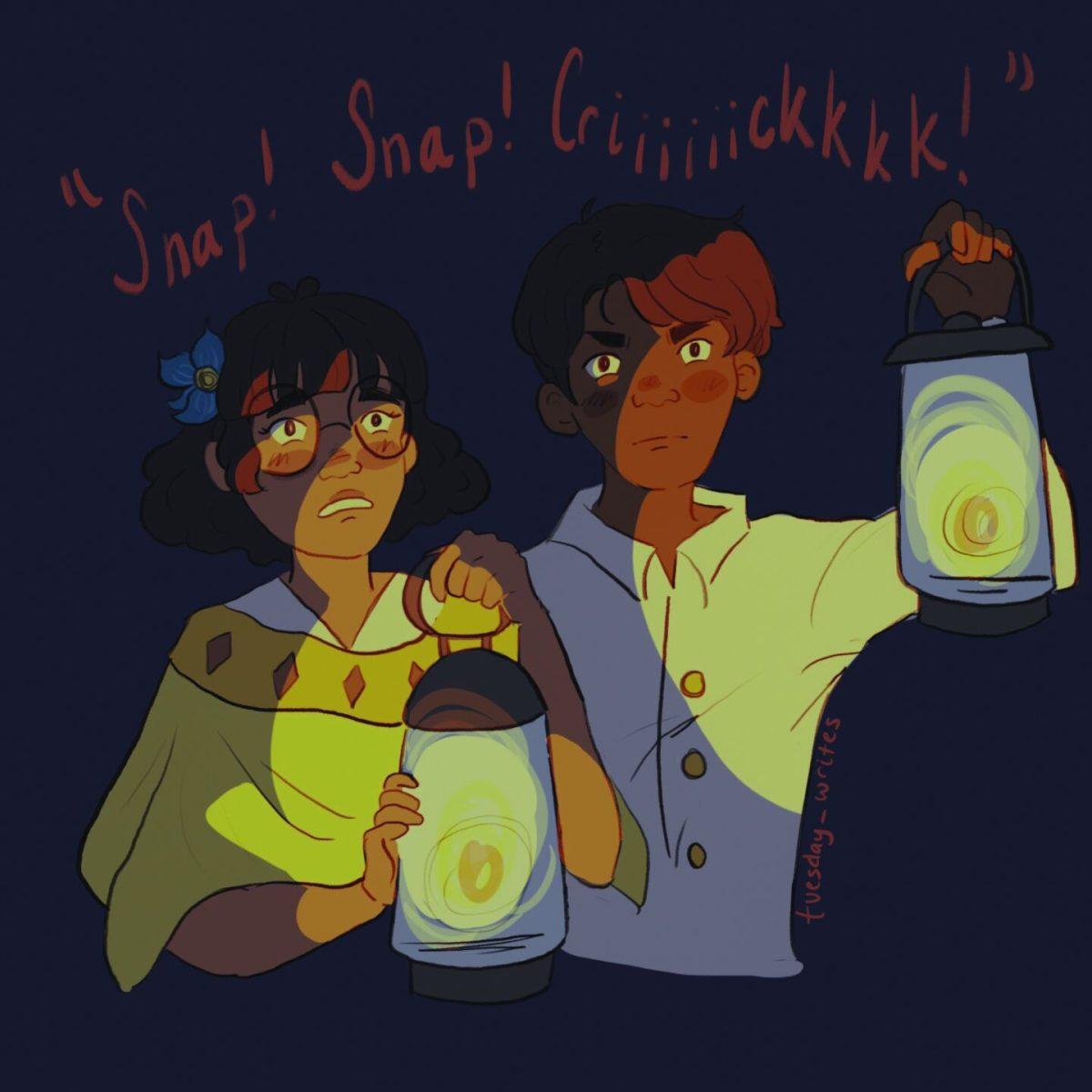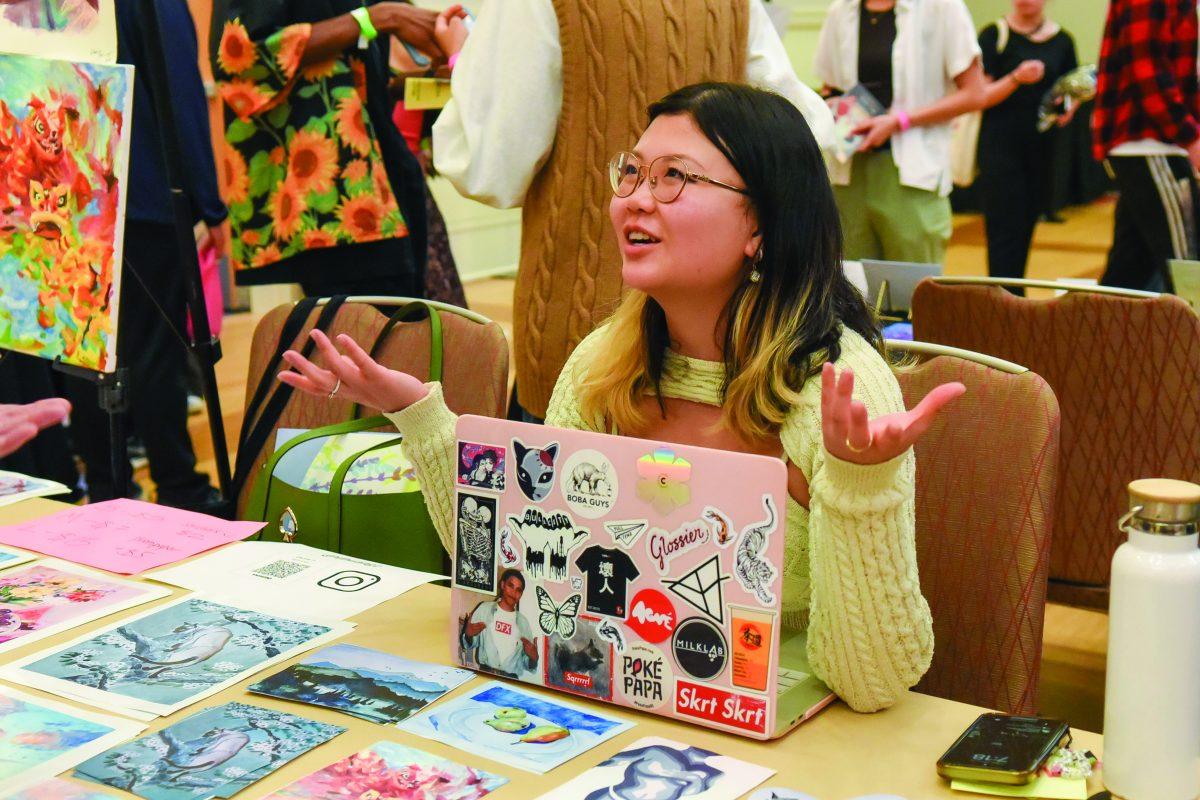It’s new, it’s hot and you can’t put it in a box. Spirituality is all the rave, and it looks like it’s here to stay. A 2023 report by Pew Research Center found that 22% of American adults identify as spiritual but not religious and 70% consider themselves spiritual.
But, what is spirituality?
Spirituality can generally be understood as a connection with something bigger than yourself and can include practices like meditation, breathwork, journaling and manifestation. But more important to spirituality than any of those practices is the absence of rituals. Simply, it’s not intended to be confined.
Riley McClanahan, a recent ecological engineering alumni and former president of the Bhakti Yoga Club, said the unique flexibility of spirituality is significant to her.
“Being spiritual in my everyday life now looks a lot like being open to all types of wisdom,” McClanahan said. “I think being spiritual in this day and age can be really confusing because there are no set boundaries, but that can also make it really special. So I think for me, being spiritual looks like kind of creating my own practice. That works for me from that place of being open and just figuring it out and trying new things.”
Charley Baun, a first-year studying horticulture science management, enjoys using spiritual practices like tarot readings and crystal healing to ground her as an individual and connect with her community.
“Spirituality can be a tool for grounding yourself in the moment and just trying to focus on the good and also being in a space with other spiritual people,” Baun said. “You can focus on that community with other people and what brings you together. But I definitely do use spirituality as a grounding thing, to remind me where I’m at in the moment and to celebrate what is good in the world.”
Nathan Lean, a professor of religious studies with specializations in Muslim-American history and religion in American culture, said for college students in particular, the experience of leaving their home environment leads to an opportunity to explore other traditions outside of organized religion — or no tradition at all.
“Not only are you by yourself and able to make decisions about how you fit into any given tradition on your own, but you’re also surrounded by people who are very different than you,” Lean said. “That’s one of the great benefits of being in college, is that you have classmates and friends and dormmates and acquaintances that share different beliefs. So I think at least the combination of those things, in part, leads us down this road of not really putting ourselves in a silo.”
Spiritual students agree that attending college opens up new opportunities to explore belief systems. Baun grew up attending a Christian church and was especially plugged into her youth group. Soon after she began high school, Baun stopped attending after noticing homophobia and transphobia within her church.
When she began at NC State, Baun started hosting events like solstice celebrations and full moon parties for her friends to foster community and connect with nature.
“I believe a lot of people, especially our age, are so disillusioned with everything going on in the world right now, spirituality can kind of be an outlook for that and a tool for escapism,” Baun said. “I think it can be a thing for college students in general, because that’s a time where you’re experimenting with a lot of things and trying to explore identity.”
Baun said her experience with Christianity gave her a negative perception of organized religion. She now considers herself spiritual and is particularly drawn to the Wiccan tradition, which is not considered an organized religion.
“My views toward Christianity are complicated in a way because in the way that my family practiced, it wasn’t necessarily negative, but the way I’ve been surrounded by so many negative principles and practices of it just kind of completely turned me away from it overall,” Baun said. “I do notice spirituality is not as restrictive as organized religion normally is.”
McClanahan said the differences she notices between spirituality and religion boils down to acceptance. She said in the Bhakti Yoga Club, there’s no pressure to believe in a god or follow rituals to a tee. And as a gay woman, she feels more welcomed when practicing spirituality.
As for the similarities, religion and spirituality both place an emphasis on community.
“Humankind needs community, and right now we have a lack of it like we’ve never had it before,” McClanahan said. “And I think that spirituality buzzword is enticing because people are like, ‘Oh I could have a community of people who want to speak more deeply, who care about my day-to-day.’”
Sumedha Somayajula, a second-year studying biology and social media manager for NC State’s Bhakti Yoga Club, finds more flexibility in how she identifies and doesn’t reject religion entirely despite her spirituality.
Somayajula grew up connecting with her family’s Hindu beliefs but eventually began to view herself as spiritual. After training to become a yoga teacher, she’s more open to Hinduism again and thus the idea of labeling herself as religious.
“I feel like it’s been this fundamental redefinition of who I am,” Somayajula said. “I felt like I was being taken apart and just pieced back together. And now in my everyday, I think spirituality to me means embracing that coming apart and coming back together as it happens from day to day.”
Somayajula said she once resented the concept of religion, feeling as though it was the cause of hatred and division. Now, she has a more nuanced perspective on religion and the role it plays in the world and her own life.
“I feel like it’s gotten so misconstrued along the way,” Somayajula said. “Right now, at least, it’s been a process of trying to redefine that for myself and find freedom in that term, as opposed to being limited or constrained by it.”
While college can be a time to explore different religious traditions, Lean said data supports the idea that this drift toward spirituality is not limited to college-aged Americans and very likely carries into adulthood. He pointed to a 2017 Pew Research Center report that said 27% of adult Americans identify as spiritual but not religious — an even higher percentage than the 2023 report — as an indication that the religious curiosity students find in college is not merely a phase.
He’s also hesitant to chalk it up to a generational divide. While Generation Z might be known for their progressive ideas, Lean doesn’t find Gen Z’s affinity for the spiritual to be a hallmark of their generation but rather a hallmark for college students overall.
“I think what we’re talking about is something that may not be necessarily unique to any generation that we would define as Gen Z or Millennials or whoever they are, but in a looser sense, young adults who are entering into the world on their own for the first time,” Lean said. “It varies for different people, but people who are now sort of at the precipice of this brave new world that is before them and are faced with having to make decisions on their own, having to really think about who they are as individuals.”
Lean said there’s a few misconceptions about people who identify with spirituality, one being that spiritual people are straddling the fence.
“I think that’s a wrong way of viewing religion,” Lean said. “Religion is not necessarily about fitting in a particular space with a particular group upholding a particular identity. That’s part of it for some people, but the group that we’re talking about, I think, has historically been committed to a spiritual path, this general sense of openness.”
Somayajula’s advice to those struggling with a spiritual label for themselves is to lean into that openness and don’t judge the journey it takes you on.
“I think we spend so much time trying to force ourselves into labels that we’re uncomfortable when there’s the absence of one,” Somayajula said. “That ambiguity can be very difficult to grapple with, but I think the most special insights and revelations and important aspects of your spiritual being are found within that ambiguity.”









